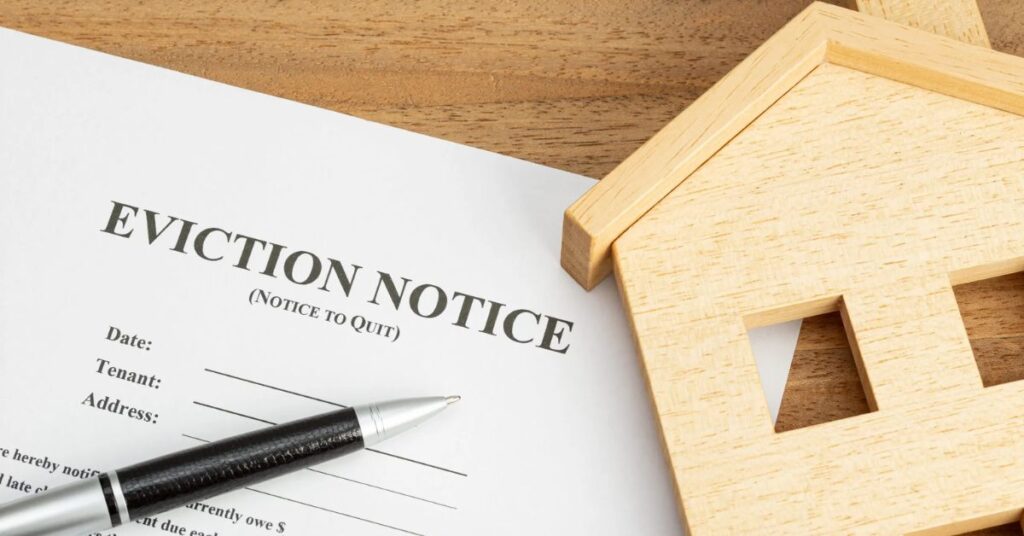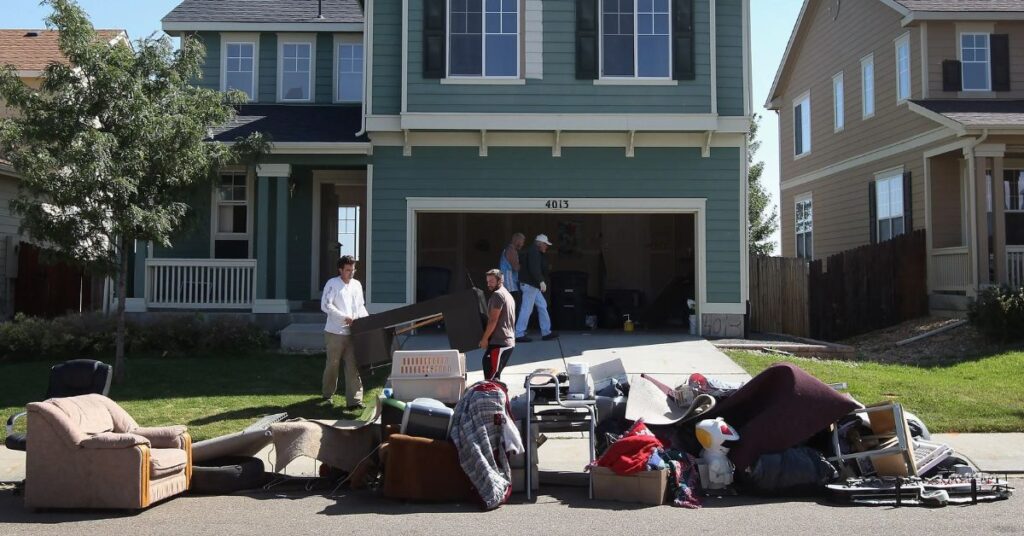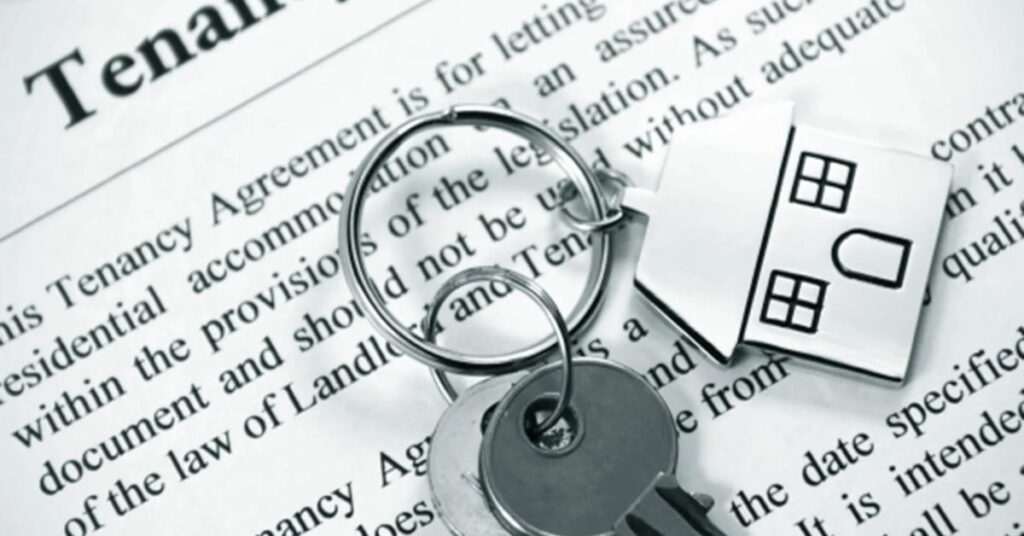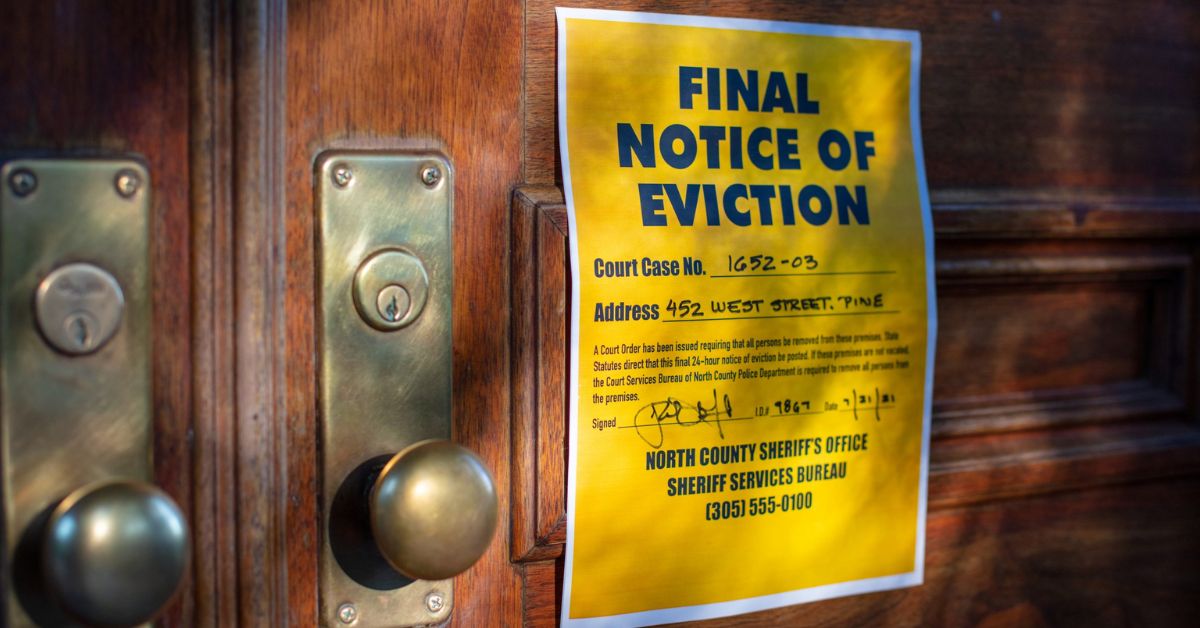If you’re a landlord, understanding whether you can still collect rent from a tenant after an eviction is crucial. The answer is yes, but the process involves several steps and considerations.
This comprehensive guide will outline the process for collecting rent from a tenant after an eviction, as well as key issues to consider. We will cover legal strategies, practical steps, and share insights from experienced landlords and legal professionals.
Key Takeaways
- The first step to collecting rent after an eviction is to send a demand letter asking for the unpaid rent.
- If the tenant doesn’t pay, you can take them to small claims court.
- You may also use a collections agency or hire a lawyer.
- Understand your state’s laws on eviction before proceeding.
- Consult with an experienced landlord-tenant attorney.
Understanding the Eviction Process

Notice to Pay or Quit
The eviction process typically starts with a Notice to Pay Rent or Quit. This legal notice informs the tenant that they are behind on rent and specifies the amount owed. The notice provides the tenant a specified number of days to either pay the rent or vacate the property.
State-Specific Notice Periods
Each state has different requirements for the notice period:
California: 3 days
New York: 14 days
Texas: 3 days
Florida: 3 days
Ohio: 3 days
Knowing your state’s specific requirements is critical. Failure to provide the correct notice can delay the eviction process and give the tenant additional time to remain on the property without paying rent.
Filing for Eviction
If the tenant fails to comply with the notice, the next step is filing for eviction with the court. This step involves submitting legal paperwork to initiate an unlawful detainer lawsuit. The court will then set a date for a hearing, and both the landlord and the tenant will have the opportunity to present their cases.
Eviction Order
Should the court rule in favor of the landlord, an eviction order will be issued. This order gives the tenant a set period to vacate the property. If the tenant does not leave by the specified date, law enforcement can be called to remove them from the premises.
Judgment for Unpaid Rent
After a tenant has been successfully evicted, the landlord can obtain a judgment against the tenant for the unpaid rent. This judgment is a legal determination that the tenant owes the landlord a specified amount of money.
Collecting Unpaid Rent After Eviction

Steps to Collect Unpaid Rent
Once you have a judgment against the tenant, you can take several steps to collect the unpaid rent:
1. Send a Demand Letter
Start by sending a formal demand letter to the tenant. This letter should:
- Detail the amount owed.
- Outline the steps you will take if the rent is not paid.
- Provide a deadline for payment.
2. Small Claims Court
If the tenant does not respond to the demand letter, you can take the matter to small claims court. Small claims courts are designed to handle minor financial disputes without the need for an attorney. The process is relatively quick and inexpensive, making it a viable option for landlords.
3. Garnishing Wages
Request the court to garnish the tenant’s wages. Wage garnishment involves deducting a portion of the tenant’s wages directly from their paycheck to cover the debt. This method is effective but requires a court order.
4. Placing a Lien
You can place a lien on the tenant’s property. This means that if the tenant owns real estate or other valuable assets, you can claim the amount owed from the proceeds of any sale.
5. Bank Account Levy
Ask the court to issue a levy against the tenant’s bank account. This allows you to withdraw the owed amount directly from the tenant’s bank account.
6. Collection Agencies
Hiring a collection agency can be an effective way to recover unpaid rent. These agencies specialize in debt collection and will charge a fee, usually a percentage of the amount collected.
Using the Security Deposit
In many states, landlords can use the tenant’s security deposit to cover unpaid rent. Each state has specific laws governing how security deposits can be used:
| State | Use of Security Deposit for Unpaid Rent |
| California | Yes |
| New York | Yes |
| Texas | Yes |
| Florida | Yes |
| Ohio | Yes |
Make sure you comply with any notice requirements and document all deductions from the security deposit to avoid legal disputes.
Importance of a Written Lease

Key Elements of a Lease
A written lease is a vital tool for protecting yourself and your property. A comprehensive lease should include:
- Rent Amount and Due Date: Clearly state the rent amount and due date.
- Late Fees: Specify any late fees and when they apply.
- Maintenance Responsibilities: Outline the responsibilities of both landlord and tenant regarding maintenance.
- Violation Consequences: Describe the consequences of violating lease terms, including nonpayment of rent.
Having a written lease provides a clear legal basis for taking steps to collect rent from a tenant after an eviction. Without a written lease, it can be more challenging to prove that the tenant owes you money.
Case Study: Successful Lease Enforcement
Consider the case of a landlord in Ohio who had a tenant repeatedly fail to pay rent on time. The landlord had a detailed written lease that outlined late fees and the eviction process. After serving the tenant with a notice to pay rent or quit and following through with an eviction, the landlord was able to obtain a court judgment for the unpaid rent. The written lease was crucial in this case, providing clear evidence of the terms agreed upon by both parties.
Read As: how to start atm business
Tracking Rent Owed
Accurate tracking of rental income is essential for legal proceedings and managing your properties effectively. Several tools can help:
Manual Ledger
A manual ledger is a simple method for tracking rent payments. Keep a detailed record of:
Rent Due Dates: Mark when rent is due.
Payments Received: Record when payments are received and the amount.
Outstanding Balances: Track any unpaid rent and late fees.
Rental Property Management Software
Using rental property management software like Stessa can automate many of these tasks. Stessa offers:
- Automated Income and Expense Tracking: Automatically track rental income and expenses.
- Personalized Reporting: Generate detailed reports on rental income, expenses, and outstanding balances.
- Rent Roll Creation: Create a rent roll to see how much rent is due and when it’s due.
Case Study: Using Stessa for Efficient Rent Tracking

A real estate investor with multiple properties struggled to keep track of rental payments and expenses manually. After switching to Stessa, the investor was able to automate income tracking and generate comprehensive reports, making it easier to manage the properties and pursue unpaid rent when necessary.
Finding Tenant Eviction Laws for Your State
Eviction laws vary by state, and it’s essential to understand the laws that apply to your situation. Here are some resources to help you find state-specific eviction laws:
State Attorney General or Department of Consumer Affairs
Contact your state’s attorney general or department of consumer affairs for information on local landlord-tenant laws.
Online Resources
- Nolo.com: Offers an extensive section on landlord-tenant law, including evictions.
- Apartments.com: Provides a helpful guide to rental and eviction laws by state.
- LawAtlas.org: Features an interactive map that allows you to click on your state and learn about the eviction laws that apply.
Library Resources
Local libraries often have books and resources on landlord-tenant law. These can provide valuable information and legal precedents relevant to your state.
Final Thoughts
As a landlord, understanding the eviction process and your rights regarding collecting rent is essential. With careful planning and execution, you can still collect the rent you’re owed even after an eviction. Here are some final tips to keep in mind:
- Stay Informed: Keep up-to-date with your state’s landlord-tenant laws to ensure compliance.
- Document Everything: Maintain detailed records of all communications, payments, and legal actions.
- Seek Legal Advice: Consult with a landlord-tenant attorney to navigate complex legal situations.
Additional Resources
- Nolo’s Essential Guide to Landlord Rights: A comprehensive guide on landlord rights and responsibilities.
- Stessa: Free rental property management software to help track rental income and expenses.
- American Apartment Owners Association (AAOA): Provides resources and support for landlords, including legal advice and tenant screening services.
By following these steps and utilizing the available resources, you can effectively manage your properties and ensure you collect the rent you’re owed. Whether dealing with habitual late payments or pursuing unpaid rent after an eviction, staying informed and proactive is key to successful property management.

William, with 5 years of technology experience, brings expertise to our website. His profile reflects a commitment to excellence and innovation in his field.











